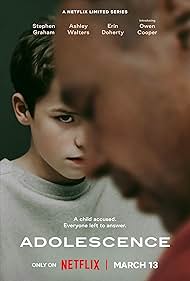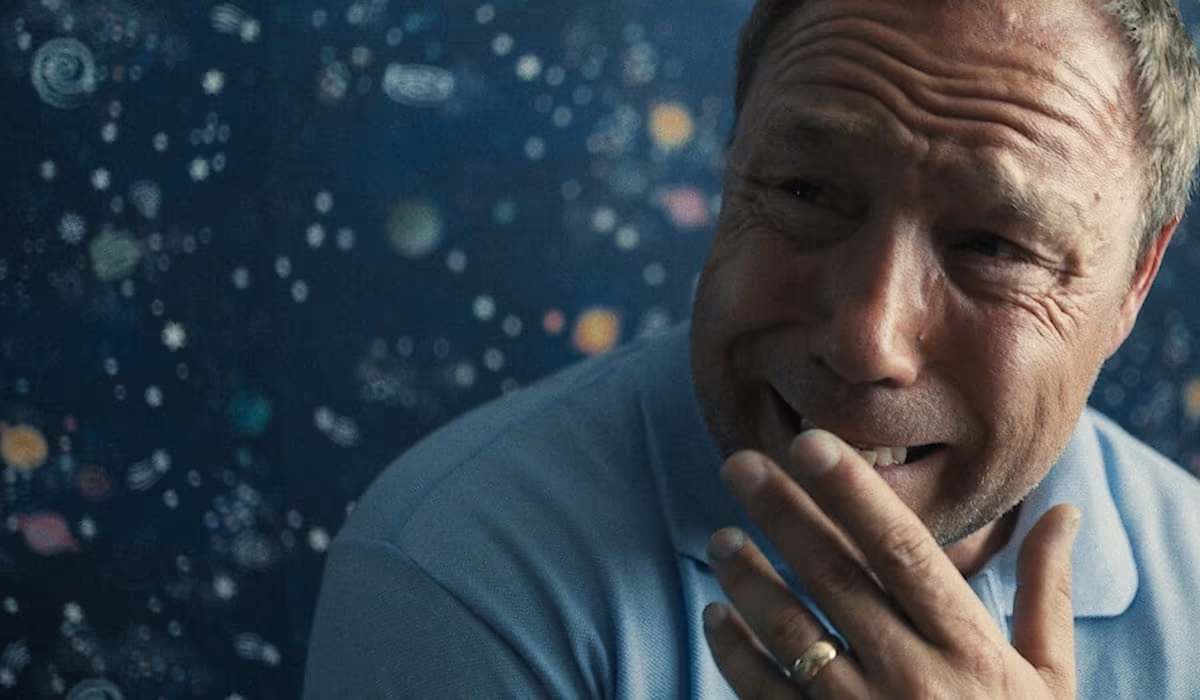 In the wake of this year’s Emmy Awards, ‘Adolescence’ (2025) was one of the big hitters. The limited anthology series brought home a well deserved 8 Primetime Emmy’s, including Owen Cooper’s record breaking win as the youngest winner of the Supporting Actor award at 15 years old.
In the wake of this year’s Emmy Awards, ‘Adolescence’ (2025) was one of the big hitters. The limited anthology series brought home a well deserved 8 Primetime Emmy’s, including Owen Cooper’s record breaking win as the youngest winner of the Supporting Actor award at 15 years old.
Not only was Owen Cooper’s portrayal of a young, disturbed, misogynistic youth worthy of all the praise, but Stephen Graham and Erin Doherty’s portrayals of Eddie and Briony were mind blowing.
Their performances were arguably the best I have witnessed all year. So simultaneously discomforting and comforting that it forces the viewer to reflect on the many shortcomings and complexities of humanity.
In this 4-part series, the characters force you to confront the stages of grief as you follow a young boy who has been radicalized by the recent surge of misogynistic, violent, and dangerous sentiments circulating online. Jamie falls into the all-too-common trap designed by figures like Andrew Tate (as mentioned in the show) that monopolizes on the turmoil and insecurity of young men, projecting these feelings outward onto women.
In this first episode we almost believe Jamie is innocent. The entire chapter, like every chapter, is a single uninterrupted shot that immerses the viewers in the unraveling of the mystery in real time. We see Jamie pleading his innocence, and he does so so convincingly. He has you on his side, until we share his father’s (Eddie) shock and denial as he watches live footage of his son committing murder.
The following episodes traverse through the later stages of grief felt by each character. The family’s (primarily Eddie and Jamie) anger, the pleading for a different reality in which Jamie is innocent, depression as the family is attempting not to be ripped apart by the tragedy, and finally acceptance. Jamie accepting his fate and deciding to plead guilty, and his father, mother and sister getting closure on Jamie’s fate.
Throughout the series, Eddie and Briony stand out as masterfully authentic characters. Eddie is captivating and complex. His experience is so painfully common in today’s world, filled with anger and misery after his very human shortcomings as the father of a murderer. Stepehen Graham’s (Eddie) writing and acting, paired with the sensational camera work and single-take episodes make this a painfully immersive nightmare.
Erin Doherty (Briony), despite her single-episode of screen time, is terrified, yet professional. Scared, yet in control. The majority of her episode takes place in a single room, and it proves an old saying true: restraints breed creativity. Her range extends well beyond the walls of the juvenile detention center, creating a deeply unnerving back and forth between her and Jamie.
The series accomplishes everything a show should, and more. With so many tools at their disposal, the cast and crew use one to the absolute fullest. Bryan Cranston said it best, when he discussed how an actor plays off of the audience. In comedic acting, the actor can’t know they are being funny. In not laughing, they leave it to the audience to laugh. In dramatic acting they cannot cry, for when they try not to cry that’s when we as the audience take it upon ourselves to shed tears, to feel their emotions to the fullest extent.
In that final episode, when Eddie is fighting his emotions so desperately yet he is losing his control of them, we feel an unbearable emotional weight. We see his strength giving in real time, and it hurts us. Then that final scene when he walks into Jamie’s untouched room, he breaks and we break, too. Sobbing as he tucks Jamie’s teddy into his bed, you can see him accept his son’s actions and his own role in them, and an entire show’s worth of tension unravels.
This show is a cautionary tale to the facade of safety a child’s room provides now. The youth are vulnerable. Whereas one’s room used to be the one space cut off from the world, it is now the exact opposite. The whole world is more easily accessible when you’re physically closed off from it. And there are people who abuse that newfound vulnerability to instill harmful values. Values that demonize women, that misplace one’s worth and sense of self.
 If ‘Adolescence’ teaches us anything, it’s that safety is a more complex term than it once was. We as people owe it to everyone around us to acknowledge this change and adapt as best we can. Maybe this way we can prevent as many Jamie’s from happening, and save as many Katie’s from a fate that sadly looms over the head of every woman.
If ‘Adolescence’ teaches us anything, it’s that safety is a more complex term than it once was. We as people owe it to everyone around us to acknowledge this change and adapt as best we can. Maybe this way we can prevent as many Jamie’s from happening, and save as many Katie’s from a fate that sadly looms over the head of every woman.





